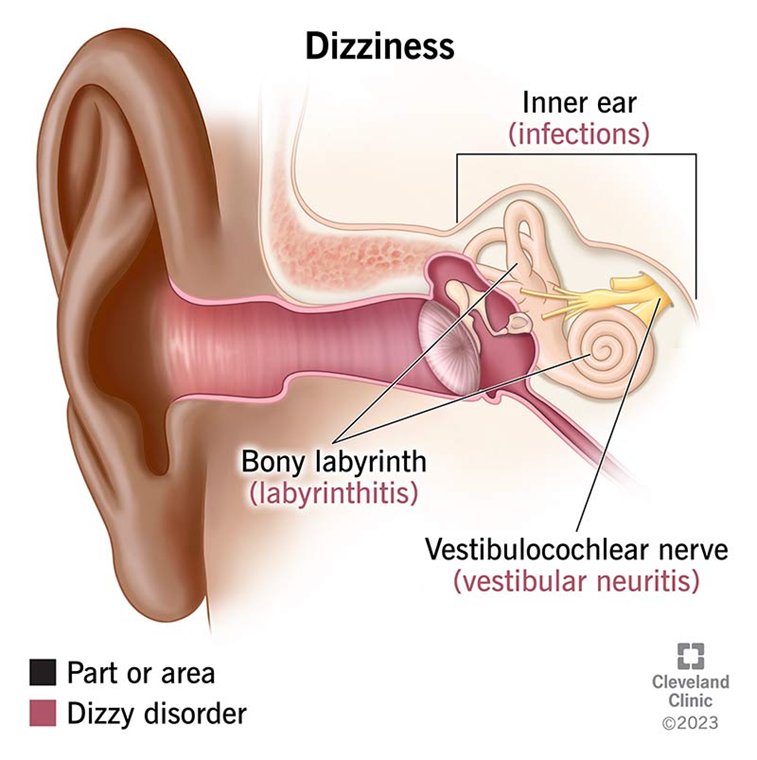A nurse is caring for a client who has been taking quetiapine for 1 week and reports dizziness. The client asks the nurse if the dizziness indicates an allergic reaction to the medication. Which of the following responses should the nurse make?
"Take your medication with a meal to decrease the onset of dizziness."
"Dizziness typically indicates an allergic response, so the medication should be stopped immediately."
"Take your medication first thing in the morning, and it will not cause as much dizziness."
"Dizziness is a common adverse effect of the medication and is related to low blood pressure."
The Correct Answer is D
Choice A reason:
Taking quetiapine with a meal can help reduce gastrointestinal side effects, but it does not specifically address dizziness. Dizziness is more commonly related to the medication's effect on blood pressure rather than its interaction with food.
Choice B reason:
Dizziness is not typically an indicator of an allergic reaction to quetiapine. Allergic reactions usually present with symptoms such as rash, itching, swelling, severe dizziness, and trouble breathing. Therefore, stopping the medication immediately due to dizziness alone is not warranted.
Choice C reason:
Taking quetiapine in the morning might not necessarily reduce dizziness. The timing of medication administration is usually based on the specific instructions from the healthcare provider and the patient's overall treatment plan. Dizziness is more related to the medication's pharmacological effects rather than the time of day it is taken.
Choice D reason:
Dizziness is a common adverse effect of quetiapine and is often related to orthostatic hypotension (a drop in blood pressure when standing up). This side effect is well-documented and usually occurs when starting the medication or increasing the dose. It is important for the nurse to reassure the client and provide strategies to manage this side effect, such as getting up slowly from a sitting or lying position.

Nursing Test Bank
Naxlex Comprehensive Predictor Exams
Related Questions
Correct Answer is C
Explanation
Choice A reason:
While the client's anger towards the provider is a valid emotional response and needs to be addressed, it is not the immediate priority. Anger is a common stage in the grieving process, and the nurse should acknowledge the client's feelings and provide support, but it does not pose an immediate risk to the client's physical health.
Choice B reason:
Feelings of guilt are also part of the normal grieving process. The nurse should provide a supportive environment for the client to express these feelings and work through them. However, this emotional concern, while important, is not as urgent as the client's physical health needs.
Choice C reason:
The client's inability to eat more than once a day is the most immediate concern because it can lead to nutritional deficiencies and affect overall health. This issue requires prompt intervention to ensure the client's physical well-being. The nurse should assess the reasons for the client's poor appetite and collaborate with the healthcare team to address this issue, potentially involving a dietitian and providing emotional support.
Choice D reason:
Recalling negative experiences during the marriage indicates that the client is processing past events, which is a part of the grieving process. It is important for the nurse to listen and provide support. However, this is not the immediate priority compared to the client's nutritional intake and physical health.
Correct Answer is A
Explanation
Choice A reason:
This statement indicates spiritual distress because it reflects a disruption in the client's spiritual practice due to the scheduling of therapy sessions. Meditation is often a crucial part of an individual's spiritual routine, providing a sense of peace, connection, and well-being. When such practices are interrupted, especially by factors outside one's control, it can lead to feelings of spiritual disconnection and distress.
Choice B reason:
While increased visits from a spiritual advisor could suggest a need for more support, it does not necessarily indicate spiritual distress. It could mean that the client is seeking additional guidance and comfort during illness, which is a common and proactive approach to maintaining spiritual health.
Choice C reason:
Gaining comfort from meditation is a positive statement reflecting that the client is able to find solace and spiritual support through their practice. This does not indicate spiritual distress; rather, it shows effective use of spiritual resources to cope with challenges.
Choice D reason:
Expressing that faith provides hope during difficult times is a sign of spiritual strength and resilience. This statement suggests that the client's spiritual beliefs are a source of support and do not reflect spiritual distress.
Whether you are a student looking to ace your exams or a practicing nurse seeking to enhance your expertise , our nursing education contents will empower you with the confidence and competence to make a difference in the lives of patients and become a respected leader in the healthcare field.
Visit Naxlex, invest in your future and unlock endless possibilities with our unparalleled nursing education contents today
Report Wrong Answer on the Current Question
Do you disagree with the answer? If yes, what is your expected answer? Explain.
Kindly be descriptive with the issue you are facing.
